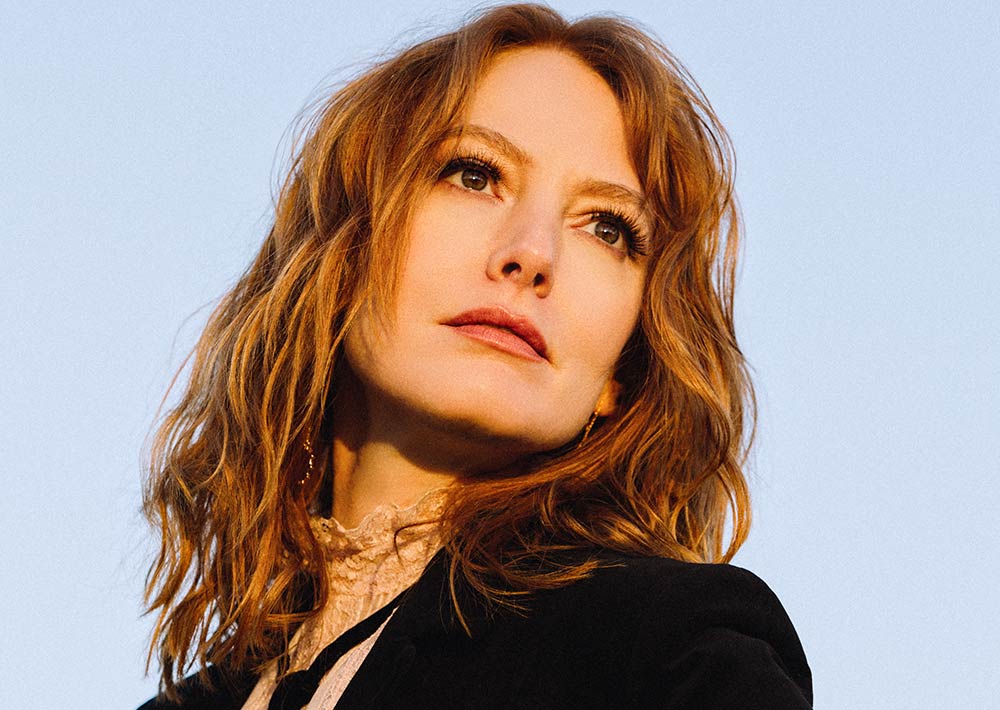
Alicia Witt: “The more you write, the more original your ideas will become.” Photo: Travis Commeau
The Hollywood star and singer-songwriter opens up about life in Nashville, her writing process and making a connection through music
Alicia Witt is an actor who has left her mark on some of the most iconic TV shows. Twin Peaks, Ally McBeal, The Sopranos, Friday Night Lights, Justified, Nashville, The Walking Dead, Orange Is The New Black have all been enriched by her presence. No stranger to the big screen either, her film credits include the original Dune, Mr Holland’s Opus, Vanilla Sky, Playing Mona Lisa and she will soon be seen alongside Nicolas Cage in the upcoming horror thriller Longlegs.
For us though, we’re interested in Alicia Witt the singer-songwriter. A supremely talented pianist with a voice to match, there’s a classical seam that runs through her music, lending it a technical framework within which she can tell her personal stories. Over its six tracks, last year’s Witness EP found her dropping her bucket deep into that intimate well and coming up with some of her strongest material yet. The follow-up to her 2021 album The Conduit, it gave us the chance to catch up with Witt in her Nashville home…
Interview with Alicia’s Nashville co-star Sam Palladio
Is songwriting something that you’re compelled to do, or do you have to book out chunks of time for it?
“I am compelled to do it constantly. Melodies, as well as lyrics, come to me on a constant basis. Whether I’m at home or on a set, I’ll constantly have these little ideas and I’ll try to capture them on my phone. I have all these unfinished little fragments that I try to save, so that when I do have those chunks of time blocked off for writing songs, I have no shortage of ideas at the ready.
“I’m also part of a songwriting circle where you have to turn in a song every week or you get kicked out. I’m now the head of the group, so I really have to turn in my song every week. The great thing about that is it keeps your muscle in shape. I don’t generally have days that are filled with two writes a day, like a lot of professional writers do, so it’s really good to keep that discipline.
“Last night, I wrote a song that will probably never be heard, because it’s such a mess. I tried to put it down on my Logic programme. I’m not good at that, but I’m trying to learn. I have a lot of good lyrics for it, but I need to work on the melody. I would not have written a song last night, because that wasn’t where my head was, but it forced me.”
What’s the next stage after you have all those ideas on your phone? Do you sit down and start crafting at the piano?
“That’s usually the next step. Sometimes these ideas come with melodies and occasionally it’s nothing but a melody. But most of the time, it’s lyrics. Then I have to figure out what I want to say, melodically, with it. Sometimes, when I sit at the piano with an idea, I get the sense that it’s perhaps not supposed to be a piano song. Maybe it’s better for me to write it with somebody who plays guitar, or to do a co-writing session where we could come up with the idea together.”
Matt Wynn co-wrote some of the songs on the Witness EP with you, including the title track. How did that one get from start to finish?
“That one came to me as a very specific melody and line, ‘Will you be my witness.’ That, plus the melody, I heard very distinctly in my head and it came to me when I was going through a very challenging time in my life. I was thinking, ‘Okay, I’m going to get through this and I’m going to be stronger because of it.’
“The handful of closest friends who truly knew what that time was like for me, they alone will be my witnesses, to remind me, ‘Hey, you got through it.’ We all have bad days, but remembering that you’re stronger than you realise, can take you very far. You need to rely on the people who stood by your side during that time.
“That song was so personal to me. I tried to write it with Matt a few months after that mantra and melody appeared. We got part of it at that session, but I think it was all still too fresh. Then, six months later, after months of going back to it repeatedly, I sent Matt a few further ideas that I had. Finally, we sat down together and finished it and I played it for the first time at a show at City Winery a few weeks after that. I knew it was done and I knew I loved it and it had to be the title for my next release.”
How did you know the song was done?
“I had a sense when I recorded the demo here at home that it was done. But I didn’t know for sure until that performance. When I sang Witness in front of an audience for the first time, I felt the energy inside myself. That was powerful. I felt the song communicated the message that I had hoped it would and I could see the audience was moved.”
Is it hard to relive difficult times on stage through your songs?
“I think it’s important for me as an artist, when I am telling a story through a song, to have an energy of catharsis about it, not sink down into it. For example, if a song is so specific to me about a certain relationship that didn’t lead to a long-term thing, it’s important when I’m telling that story to realise I’m channelling a thing but it’s not where I currently am and I don’t feel that anymore.
“When I tell stories like that, it often takes me fully back into that time. It’s like when you play a character, and the character might be going through something, but it’s necessary to put a little shield around yourself so that you can fully go into where the character’s frame of mind is and then also go fully out of it when you’ve done your work for the day.”

Alicia Witt: “When I’m in the process of creating a song, it’s better to not stop and self-edit, just let it come out.” Photo: Travis Commeau
It sounds like your acting work is helpful for you as a songwriter and performer…
“Yeah, the other thing that’s interesting with songs that I’ve written, or somebody else’s songs, when I perform them they usually take on the meaning of wherever I personally am in my life in that moment. So a love song, of course, that I wrote about somebody else 10 years ago becomes about whoever it is that I feel that way about, at this moment. Sometimes it becomes a song that is directed towards the audience, I often feel that way.
“For example, there’s a song called New Word that is on an earlier album of mine [Revisionary History] and I often look out into the audience and feel that way about the people who have gathered there and the love that I feel for them for having made this part of my life possible through listening to my music.”
Then there’s the other side of it, where a song that might have a very specific meaning to you will have a completely different meaning for someone listening. Is that something that you enjoy?
“Yes, that’s one of the more magical aspects of writing a song. I think anyone would relate to that if they are a songwriter. You have a little seed of something that inspires you and then it’s how far you can take your own personal experiences and turn them into a three-and-a-half-minute message that might mean something to you when you sing it, but it means something completely different to the audience. Often, depending on who you’re talking to, it can mean a million different things.
“I’ve had people think that a love song is a song of lament. There was a person at a show once who heard a song of mine called Face Change that was telling me the song meant to them the way a person’s face changes when they’re about to die. I loved that. There’s something so mystical about knowing I wrote the song about a completely different experience. They heard it as describing this moment they witnessed when their father was about to pass away and they saw his face change. It occurred to me that every word of my song could apply to that.”
When you’re writing a song do you ever have that stuff in your mind, wondering what it might mean to the listener?
“When I’m in the process of creating a song, it’s better to not stop and self-edit, just let it come out. Then, look at it the next day. If there are sections that feel too vague, or maybe even too specific to your own situation, you might want to edit that a little bit, so that someone else can put their own experience on it. Maybe there’s another way of saying what you said that feels just as personal to you but doesn’t doesn’t exclude the listener?”

Alicia Witt: “The inspiration of being in a city [Nashville] where thousands of songs are being written constantly is remarkable.” Photo: Travis Commeau
“I like both parts equally. They exercise different parts of my brain. I do enjoy the editing and the revising process. Usually, if I listen back to a song, I get a sort of shiver feeling if I know that it’s right. If there’s a part I have a hard time remembering the words to, or I keep having to re-listen to it like, ‘What did I say?’ it feels like a bump. I’ve always likened it to Sudoku and the sense that when you find the perfect word, or the perfect phrase, where something’s been bumping, it’s like, ‘Oh, there we go,’ and it feels like it’s what it was supposed to be.”
And what’s it like living in Nashville and being surrounded by so many talented songwriters and musicians?
“I find it so incredibly inspiring. Because there’s no shortage of people that I can reach out to, to co-write with. Of course, a lot of the people who do that are very busy, so you have to book it a while in advance. I have other friends who are incredibly talented and they don’t do it every day. So I can usually find someone if I really want to write with somebody. Or if I just want to sit down at my keyboard or my piano, the inspiration of being in a city where thousands of songs are being written constantly is remarkable. I feel much more inspired here than I did when I lived in LA.”
How did you end up there?
“I moved to Nashville after I was on the show Nashville. I had been spending lots of time here before that and several recordings of mine had already been done here. Lots of the songs that I’d written up to that point were written in Nashville, and spending that amount of time here for a consecutive number of months showed me that I really didn’t need or want to live in LA anymore. This is where my heart is. I didn’t move to Nashville for music, I moved here because I loved it.”
From the outside, it feels like the kind of place where you can’t sit around waiting for inspiration to show up, especially when it comes to writing sessions…
“Yes, you have to be inspired when you show up that day. I love that about the professional writing session and the culture of Nashville; you don’t really have days where nothing comes. Of course, that happens once in a while, even with very experienced songwriters. Or you start down a path, get a few hours into it and you both have a sense that this isn’t something you are going to use or like. But I’d say that happens rarely. It’s just incredible that you get these creative minds together.
“Part of my discipline has been that jotting down of ideas when they come. The more I do that, the more ideas I find. That way, there isn’t a shortage. If we have a day where nobody’s got an idea they’re burning to write at that moment, I can just play three or four different ideas and one of them is going to spark the other writer and then we’re off.”

Alicia Witt: “Part of my discipline has been that jotting down of ideas when they come.” Photo: Travis Commeau
How about when you when you sit down in front of your piano, will you always find inspiration then?
“Something always comes through when I sit at the piano, whether it’s something that I recognise as being the start of a good idea or not. If I sit down to write an original song at the piano, I do have a set of lyrics in mind for it. Then I noodle and I try to see where it leads me. I usually leave my voice recorder going on the phone, because often I’ll play something and I think, ‘Oh, that was good.’ And I’ll check what time that happened, say at 3 minutes and 30 seconds, and then I’ll keep on playing.
“More often than not, I don’t remember what it was I played, so I’m grateful I have the recording because, as I continue to play, it’ll morph into something else. Sometimes it’s better than what I first came up with and sometimes it isn’t better and I need to go back. So that’s an important discipline for me.
“The final thing I wrote last night, for example, which I did on my Logic, and it’s not good, because I’m not a good technician/engineer at Logic, but a lot of the lyrics I do like – I’m thinking I might sit at the piano today and see if there’s a better melody I could come up with.”
There’s a different charm that comes from not being so proficient at the instrument or equipment that means you might come up with something you wouldn’t on the piano…
“I did find a loop that I really liked. I found this bank of loops that’s just sitting there and I hit on one and I loved it. It’s exactly the vibe I want for the song. So yeah, if it does turn into something, that loop would be a part of it.”
And do you find you have to stop your hands from going into the same places they always fall into on the keys?
“That generally happens naturally, that I am doing something different. But I would say the advice I was given when I first started writing songs consistently has really helped me in that way. Because in the beginning, I was writing versions of the same thing. It just takes practice; the more you write, the more original your ideas will become.”

Alicia Witt: “That is why I make music, to help connect people and to create something that’s beautiful.” Photo: Jeff Fasano
How lofty are your ambitions as a songwriter and performer?
“I love it when I know that a song has reached more people, because that means it’s reached more hearts. What I love about my favourite songs is that they come along with me as I’m living my day and they provide me inspiration to go out and do whatever it is I have to do: they help me to have a good workout, they help me to sleep well, they help me when I’m driving in the car and I need to psych myself up for a big meeting.
“So when somebody comes to one of my shows, and they’re singing along to the song, and they tell me that this song has meant so much to them, and they tell me it helped get them through a tough time – I think that is the ultimate goal. That is why I make music, to help connect people and to create something that’s beautiful and is hopefully going to reach a lot of hearts and help them have a better day.
“When I play a show and I look out and I see that everyone in the audience is enjoying the same piece of music, I know, for at least that moment, I’ve connected everybody in the room who may have very little to do with one another and may not even like each other that much otherwise. That is something I can’t say I get from any other aspect of my life besides my original songs and the gift of getting to share them with people. I know I only get to share the songs because people are out there in the world listening to them and enjoying them.”
Is there one of your songs that means more to you than the others?
“That is such a hard thing to answer. Witness is absolutely one of them. It will always specifically mean to me what it meant to me when I wrote it. And I also realise that the song is crafted in such a way that it means what it means to me and anyone out there who’s either been a witness for someone going through a tough time, or someone who’s gone through one themselves, it will mean specifically what it means to them. I feel like Matt Wynn and I really created what we set out to create with that one. I’m very proud of it.
“Then there’s others too. I mean, Always Tuesday on the same album, is a song that I said exactly what I meant to say with and it felt like it came from some other place. I hardly feel like I wrote it, it came so easily and felt like a little portal was open.”



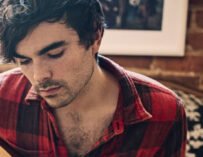
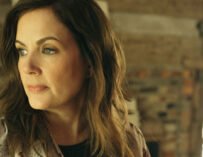

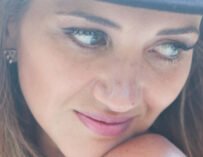
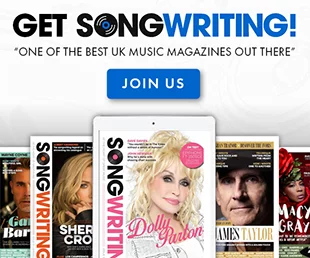



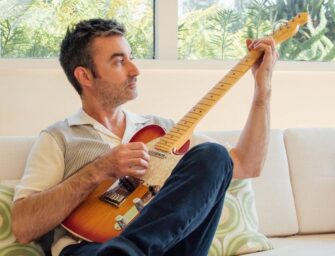
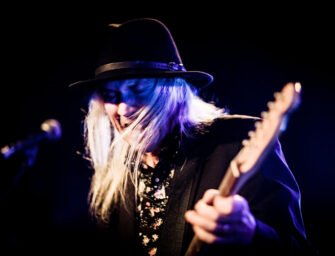






















Related Articles